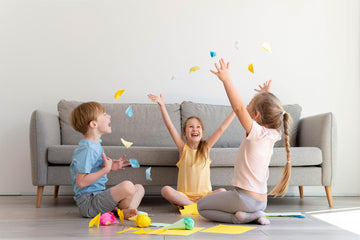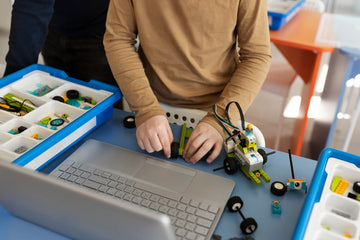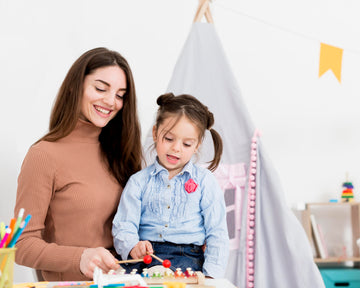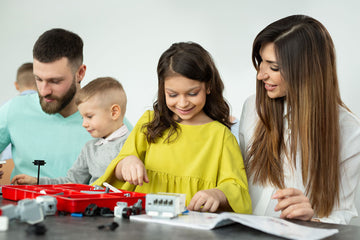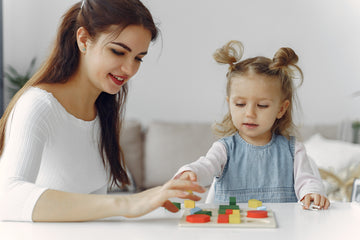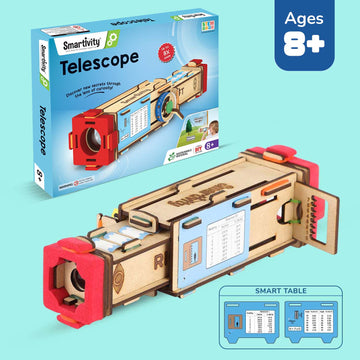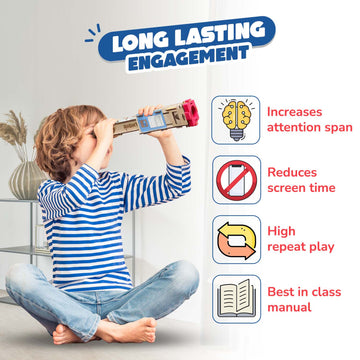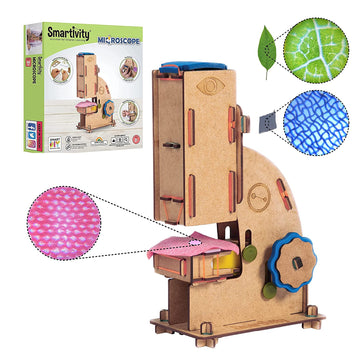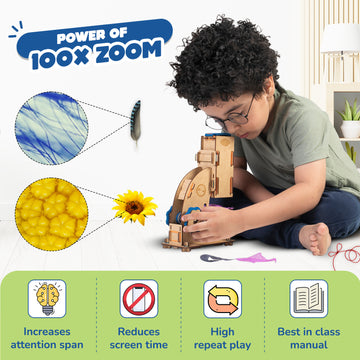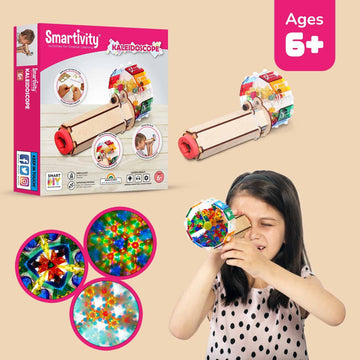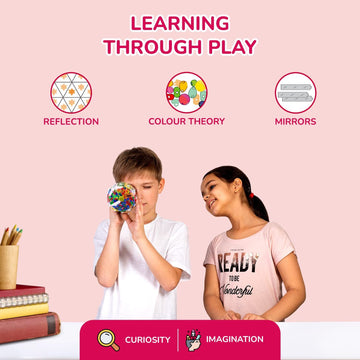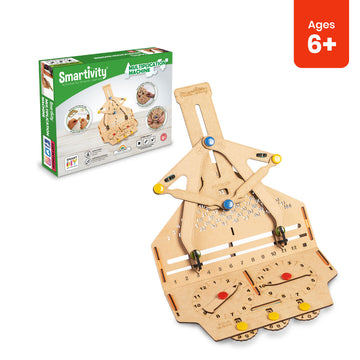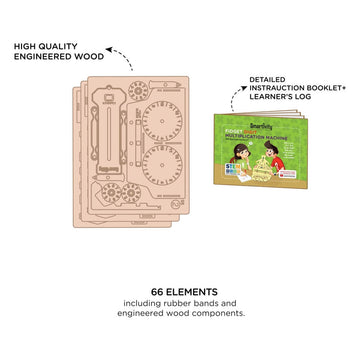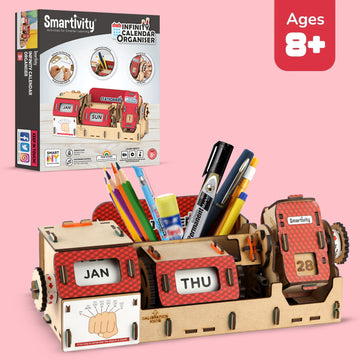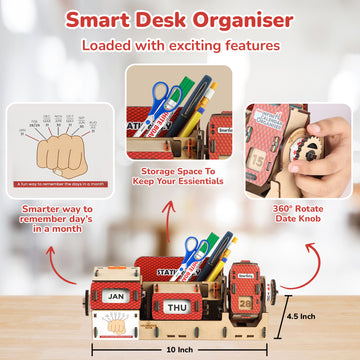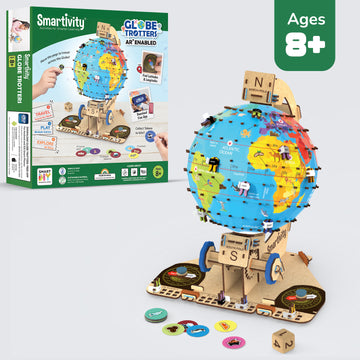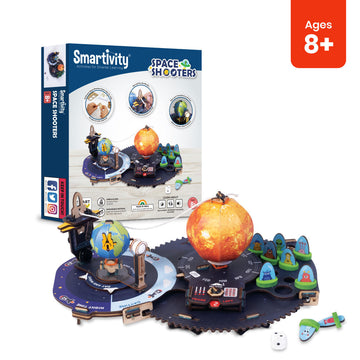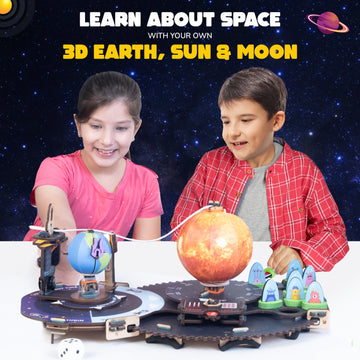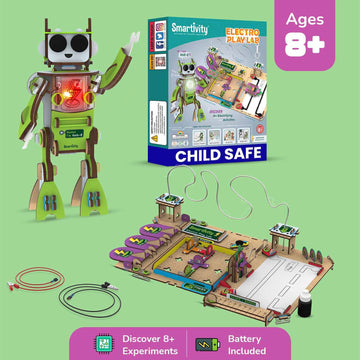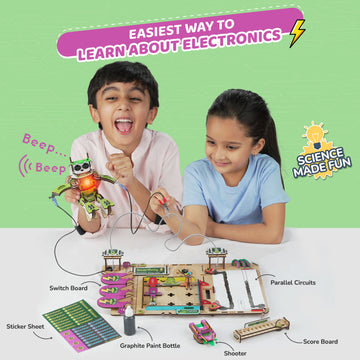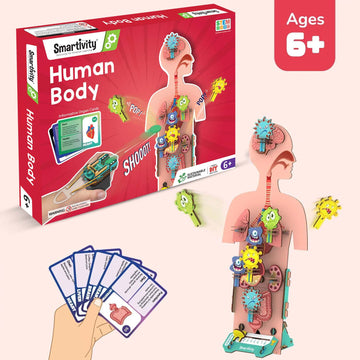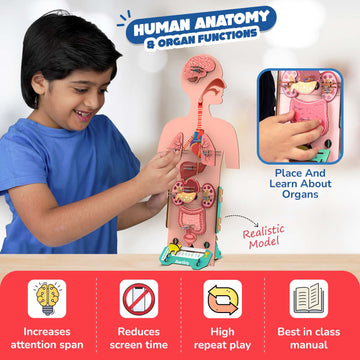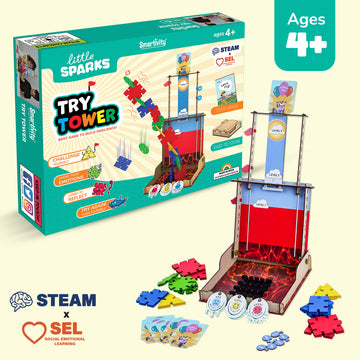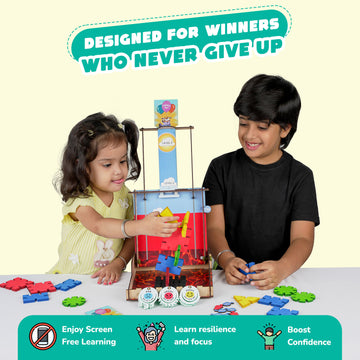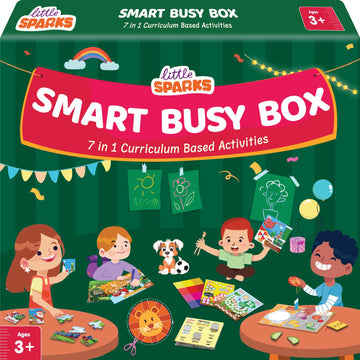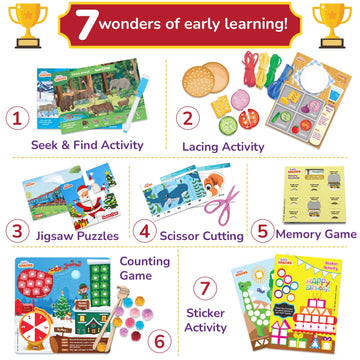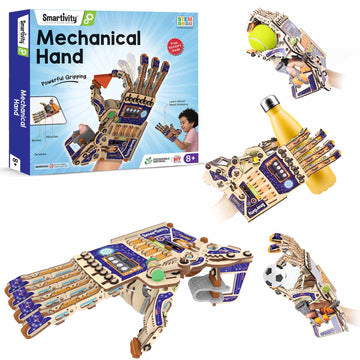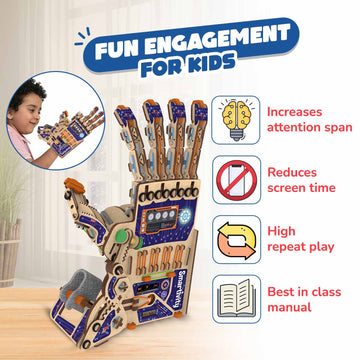Different types of play and how they can benefit your child
by Smartivity on Tue, Aug 02, 22
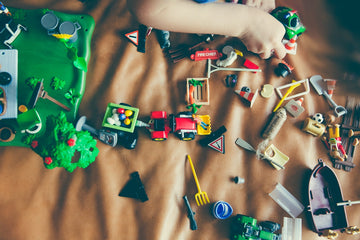
“Children learn as they play. More importantly, in play, children learn how to learn.”
- O. Fred Donaldson
We’re often guilty of taking our young ones away from play and sending them to learn as if they are two different things. We’re now valuing how important it is for a child to be able to freely play so as to freely learn, without any set curriculum, but with the complete freedom of play that nurtures creativity like nothing else.
Not only can play help your children learn basic concepts while nurturing creativity, but it can also help your children connect to you, strengthen your bond, and learn the rules of family life and society at large.
Moreover, play is needed for healthy development of young minds, as well as bodies. We know children’s brains are largely developing during their formative years, which is why it’s important to engage their developing brains in constructive play that contributes to cognitive and motor skill development.
That said, young children can indulge in many types of play. In this article, we’ll discuss a few and how they help nourish children’s development.
Types of Play
Unoccupied Play:
This kind of unoccupied play occupies your young ones in their early months of infancy, from birth to about 3 months. This kind of play involves making random movements with no clear purpose, which is the most initial form of playing.
Solitary play:
This kind of play will keep three to eighteen-month-old babies busy and entertained on their own, without any intervention or company required. They are busy getting to know everything new around them by watching, grabbing, and rattling objects without really noticing or getting bothered by what’s around them. Because of toddlers’ limited social, cognitive, and physical skills, solitary play is common in kids this age. And this kind of solitary play, if carried well and in the right proportion in older kids, can help nourish creativity and intuitiveness in children too.
Onlooker play:
Another kind of play common amongst toddlers is onlooker play, in which children watch other children learn how to play, relate to others, and also learn the art of communication in a social setting.
Parallel play:
Kids, when they’re aged between 18 months to two years, begin to learn how to play alongside other children without any interaction. It is common among toddlers and provides them with opportunities to relate to each other, carry on role-playing by dressing up and pretending, and also understand the idea of ownership and developing the ego ‘I.’
Associative play:
When children reach the age of 3 - 4 years, they start to become more interested in social play, rather than playing with toys on their own. They learn the do’s and dont’s or the ‘rules’ of being a part of society. This kind of play teaches the art of sharing, and encourages language development, problem-solving skills, and cooperation.
Social play:
This kind of play begins in young minds at around the age of three, when they’re beginning to socialise with other children. This kind of play encourages them to learn social rules such as team playing, sharing, give and take opportunities, as well as co-operation. This way, children are able to share educational toys and ideas, and explore play time and creativity together. Therefore, this type of play can help them be more prepared for the adult social world in the years to come.
Physical Play:
This kind of play is as important as mental stimulation for young minds. It’s not unknown that engaging in the right amounts of physical activity can help nourish mental growth in your young ones as well. When your children run, jump and play outdoor games with others their age, they will engage in physical activity that will nourish their bodies and minds. Along with exercise and fun, your child will also come to terms with winning as well as losing when playing with others.
Constructive Play:
This could be one of the most important types of play in this day and age, that allows them completely screen-free time to create things using all their mental capacities, individually or with a group. Constructive play starts in their infancy and becomes more complex as they grow up. In infancy, creative, constructive play begins when they put toys in their mouth to see how they feel and taste. Then they might begin drawing on paper, sand, building with blocks, etc. When they grow up, investing in the right construction toys can help them gain confidence, nourish their creativity, and understand concepts that could otherwise be quite complex. And once they construct entire science toys before they get to enjoy it, they will value hard work and take the learnings into their adult life that will make them always want to do things differently. Following are the ways in which construction play with educational toys impact the overall development of a child:
- It improves their motor skills and acquaints them with the concept of manipulation. They understand the space occupancy of various shaped objects, big or small, enhancing their spatial awareness.
- When kids enjoy construction play with science toys or math toys, they understand how to create a structure that does not topple over. This nurtures their problem-solving skills and polishes their logical reasoning.
- Here is where victory knocks on the door when kids master the art of focusing. Technology toys and Math toys maintain their attention for longer periods of time, alongside imbibing in them the important skill of patience.
- Some kids live by the rule book, while others let their imaginations run wild and free. Construction toys allow the seeds of imagination to thrive. As kids create structures, they also narrate stories, which leads to the development of their verbal skills.
- Well, who isn’t proud of their accomplishments? Small success builds confidence in kids, helping them believe that ‘They can ’!
- Also known as STEM toys, technology, science, and maths toys not only introduce kids to the concepts of academic subjects but also force them to use their minds instead of relying on technology.
Expressive Play:
This is another form of play that is very important for nourishing creativity in young minds. Playing with different materials can help them express their emotions and feelings creatively. You can introduce many materials to your children to let their imagination run wild and get comfortable with a material they choose. Think drawing or painting material, writing material, clay, water, sponges or cloth, math toys, technology toys, and types of musical instruments to let them explore. It’s best to take part in the kind of play they choose so they get to know there are many ways to express themselves.
Fantasy Play:
This kind of play comes quite naturally to a young kid’s mind. They’re experts at role playing, daydreaming, making up new languages, new scenarios and more. They learn to think in abstract forms and can stretch their imagination to use new concepts, words, numbers and more. Our role in this kind of play would be to let them free to imagine as far as they can without obstructing their fantasy.
Cooperative play:
Cooperative play begins in the late preschool period for children. Organised by group goals, there is one leader with other children following them for rules of play. It can also be playing with educational toys as a group to construct science toys together before they enjoy and play with them. This kind of cooperative play can help children understand social order and rules.
In conclusion, play is the only form of unstructured learning that gives your young minds learning for life. So as long as they have healthy forms of play that keeps their bodies and minds growing and nourished, there’s nothing to worry about, or stop them from doing. Moreover, it’s even healthier if you can involve yourself in their play time. It can all work toward strengthening your bond, increase communication, help in sharing values and allow you to view the world through your child’s eyes!


